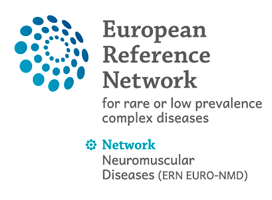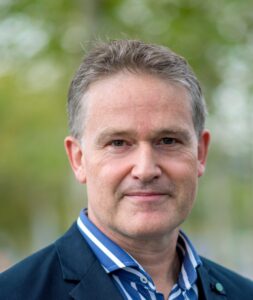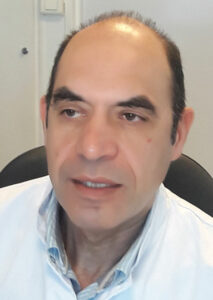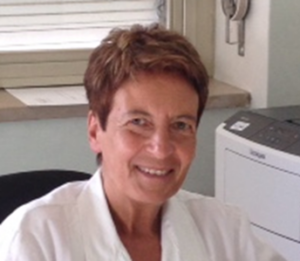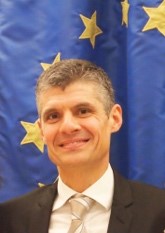Introduction
This working group was established as part of the inter-ERN Postgraduate Curriculum project, a collaborative effort involving three ERNs: ERN EURO-NMD (neuromuscular diseases), ERN-RND (neurological diseases) and EpiCARE (rare and complex epilepsies).
This project aims to develop a competency-based European curriculum for neurological diseases that integrates a common ERN strategy on education and training. This framework is organized into two main components:
– A general module that addresses a range of topics relevant across the three ERNs, including neurogenetics, neuroimaging, organization of care, emergencies, transition of care, patient perspective and research.
– Disease-specific modules developed by each ERN.
This work will draw from the ILAE’s Roadmap for a competency-based educational curriculum in epileptology as a model for structuring educational content.
EURO-NMD’s Focus on Neuromuscular Diseases
The EURO-NMD working group will focus on neuromuscular diseases, encompassing both pediatric and adult topics. The NMDs module is being developed to align with the training requirements of the EPNS and the EAN, as well as those of the ESHG and the UEMS Rare and undiagnosed diseases.
The module covers nine key disease groups within neuromuscular diseases: acquired and hereditary myopathies, mitochondrial diseases, acquired and hereditary motor neuron diseases, acquired and hereditary peripheral nerve diseases, and acquired and hereditary neuromuscular junction disorders.
The module’s development follows a series of structured steps:
1) Develop a Body of Knowledge (BoK) for each disease group: a catalog of competencies and learning objectives structured around five identified domains:
- General/Theory
- Diagnosis
- Disease management
- Treatment/therapy
- Patient perspective
Each BoK will have two levels – level 1 (Basic) and Level 2 (Advanced) – and will undergo review by EURO-NMD cross-cutting working groups (genetics, EMG, imaging, pathology), peer experts, and patient representatives.
2) Define suitable formats for knowledge transmission (webinars, educational cases, readings, stays at expertise centers)
3) Map existing educational materials covering the learning objectives, to ensure comprehensive coverage of the curriculum.
4) Create new educational materials where gaps exist
5) Design a syllabus that outlines all relevant information for the module in a clear and accessible format
6) Compile all materials/components to form a cohesive module for each disease group.
The ERN EURO-NMD module will serve as a critical resource for advancing knowledge and skills in neuromuscular disease management across Europe, aligning with the highest standards in medical education and care.
